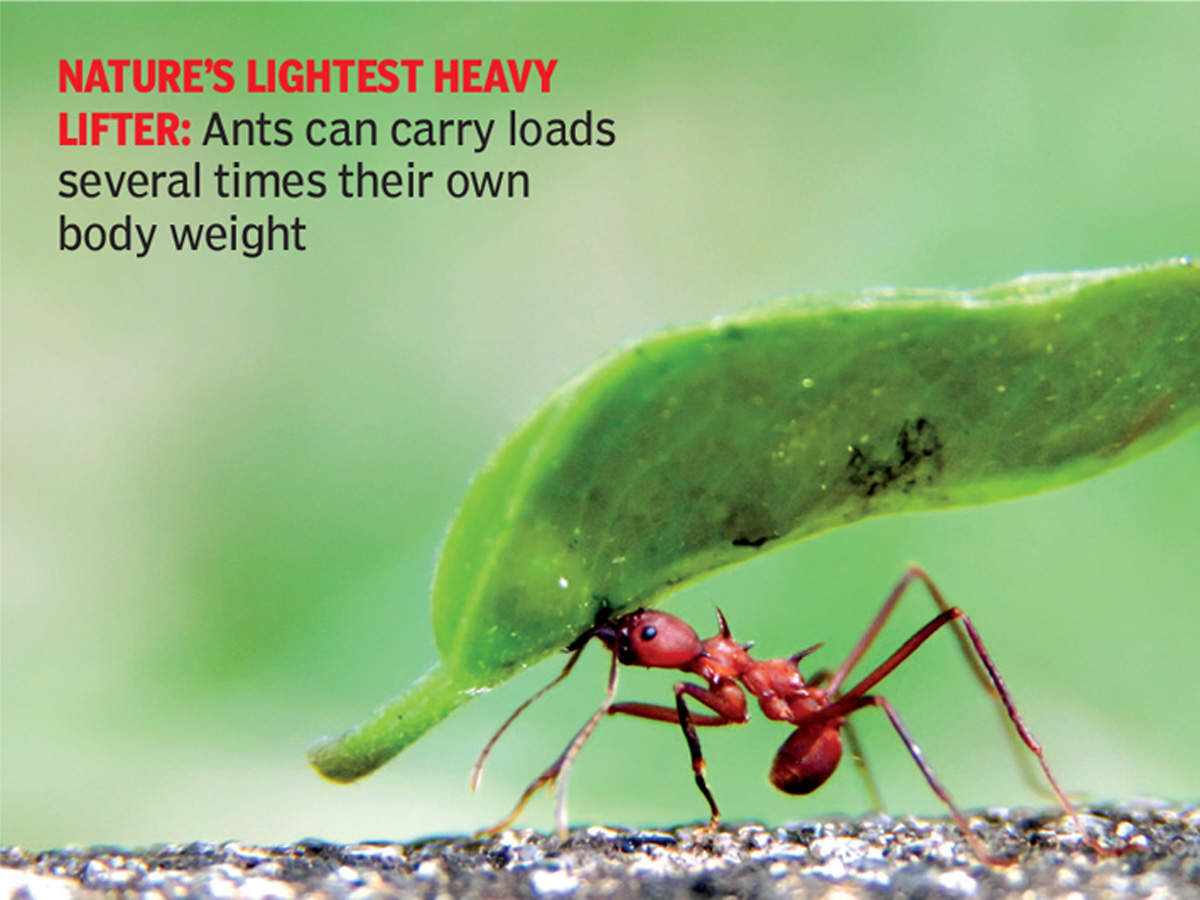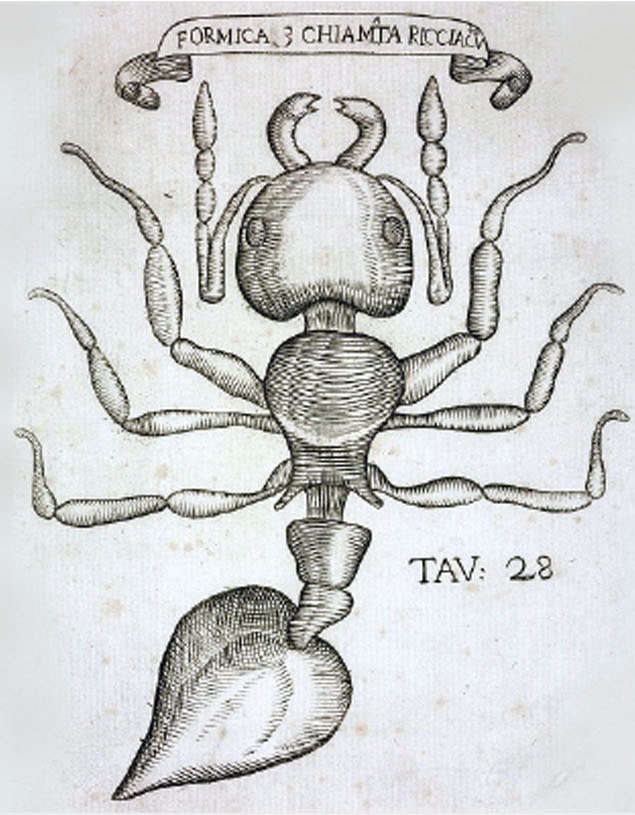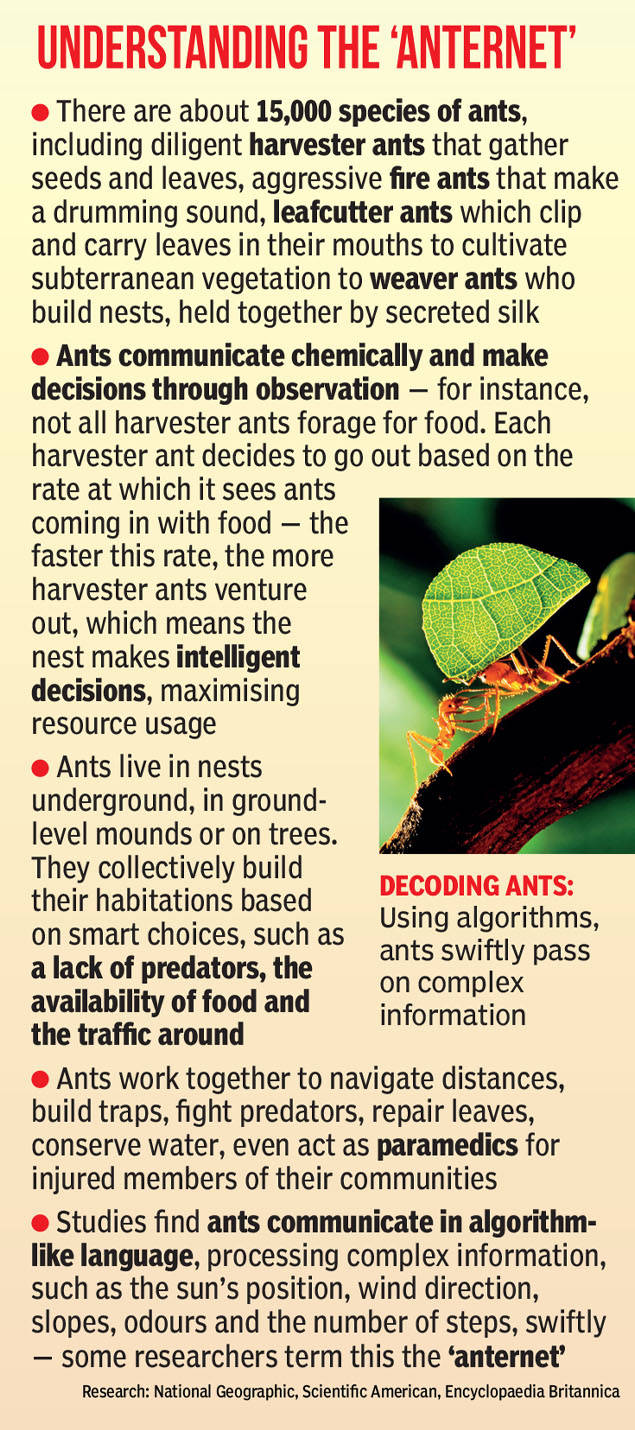
‘Ants are amazing scientific and social beings — we humans need them’
by Srijana Mitra DasCorrie Moreau is a renowned evolutionary biologist and entomologist
Corrie Moreau is a renowned evolutionary biologist and entomologist, specialising in myrmecology or the study of ants. The Cornell University professor and director and curator of the Cornell University Insect Collection spoke to Srijana Mitra Das at Times Evoke about the enormous wonder a small ant truly is:
Most people don’t really notice ants. What drew you to research their world?
Well, although ants are small, their impact on the environment is huge and they accomplish incredibly complex tasks through collaboration. I always loved insects and watching the behaviour of cooperating ants fascinated me since I was young. Now I’m lucky enough to be able to study them for my career. And studying ants has taken me around the world! I’ve even done ant research in India, which was amazing.

Photos: Getty Images
Why are ants called scientific marvels?
There are so many fascinating scientific facts about ants. For example, almost every ant without wings is female. These female ants do all the work in ant colonies — they gather food, dig tunnels to expand nests and even fight battles. Males have wings and their only role is reproduction. In fact, males die shortly after mating, while the new queens fly off to start a new colony. Ants are also incredibly strong — some species can carry 100 times their own body weight. Imagine what we could accomplish with that strength.

140 million years old: An ant engraving from Florence, dated 1688
‘Fireflies give us the gifts of beauty, scientific invention — and hope’
What are some vital environmental roles ants perform?
Ants are ecosystem engineers, which means that they create and modify their habitats. Think of the complex three-dimensional fortress they build below the ground to live in. Through this process, they also aerate the soil — essential for soil health and crop production. In fact, ants likely turn more soil than earthworms. In addition, they participate in decomposition and disperse the seeds of plants. Many species of plants rely entirely on ants to disperse their seeds. Without ants, the world would not be a very great place to live.
‘It’ll be a sad world if children never see a firefly on a dark night’
How do ant groups apply symbiosis to their world?
Ants are very interesting also because they engage in symbiotic relationships across the tree of life — they fulfill protective symbiotic relationships with several sap-feeding insects and plants. The sapsucking insects or plants provide food to the ants — in return, the ants protect them from enemies and parasites. Some ant species even farm fungus to eat. And many ant species have gut bacteria that help them process their food. One reason ants are so successful is due to these symbiotic interactions.

‘Bees help create our food — they just want to quietly visit their flowers’
How did you discover that the ant species is 140 million years old?
Through sequencing parts of the genome of many, many species of ants, and using information from the fossil record (the oldest ant fossil is 100 million years), we were able to reconstruct a very large ant family tree and show that ants arose about 140 million years ago. Although the first ants were predatory and nested in the ground, many species have transitioned to living in trees and have a strictly plant-based diet, through the aid of gut bacteria. In fact, the spread of flowering plants across the planet allowed ants to diversify in species and grow in terms of where they live and what they eat. Ants are now found on every continent except Antarctica.

Do ants have distinctive personalities?
With over 15,000 ant species, there are so many diverse ways that ants behave. Some are predatory and actively hunt, others are herbivores or vegetarians and never leave their host plant. Even inside a single colony, there is variation in how individuals behave. Ants are a fascinating social animal to study. There is so much to learn about them! If students are looking for a fun career, I would highly recommend myrmecology — the study of ants.
Are phenomena like climate change impacting ant populations? How can ordinary people help protect them?
Unfortunately, both climate change and habitat loss are impacting ants and many other animals, plants, fungi and microbes. Most species of ants have very large distributions, so when habitats are converted for human use or when temperature or precipitation change, many species are negatively impacted — or even lost to extinction. Humans can help by preserving native habitats and championing wildlife and conservation. It is our job to be the stewards of nature and all the beautiful organisms on the planet. They need us — and we need them.